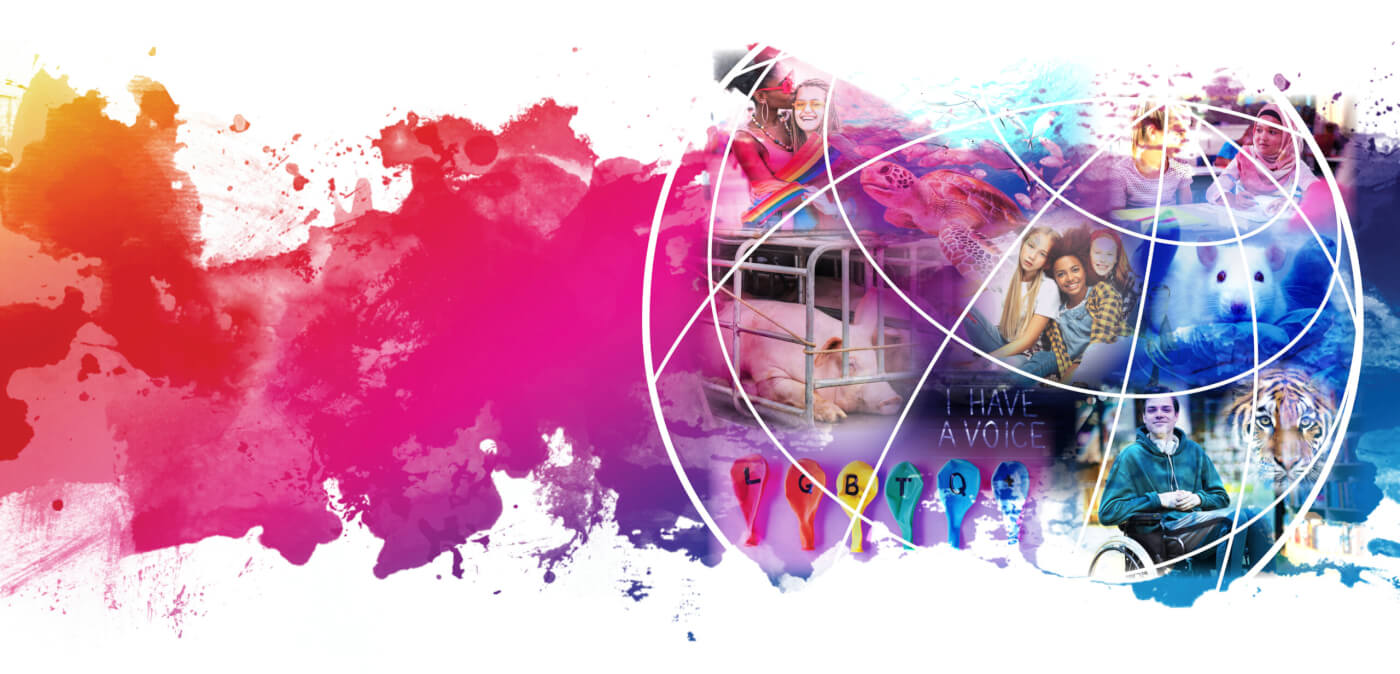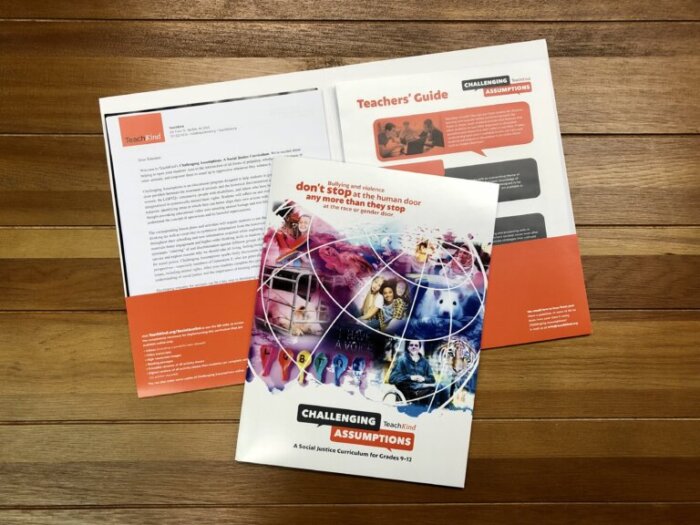Challenging Assumptions: A Social Justice Curriculum

What Is 'Challenging Assumptions'?

Bullying and violence don’t stop at the human door any more than they stop at the race or gender door.
Teachers today want to address social justice issues like racism, sexism, homophobia, and other harmful forms of discrimination with their students, but they may not be sure where to start. TeachKind’s free social justice curriculum, Challenging Assumptions, is the answer. In these polarized times, a social justice curriculum focusing on animals diffuses the politics and allows the message of empathy to shine through. Challenging Assumptions educates and empowers students in grades 6–12 to challenge societal norms and inspires compassion and empathy for others regardless of species, race, gender, sexual identity, age, or ability.
With these lesson plans, teachers can help their students examine the intersections of many forms of prejudice, synthesize information from the historical framework that they’ve studied throughout their schooling, and use new information to do the following:
- Examine current moral dilemmas, such as speciesism
- Develop higher-order thinking skills, focusing on the theme of the systematic “othering” of and discrimination against groups of humans as well as members of other species
- Explore the reasons for considering all living, feeling beings in the fight for social justice
This social justice curriculum sparks lively discussion among students with a wide range of perspectives—especially among members of Gen Z, who are generally highly motivated by social justice issues, including animal rights. The lesson plans include a groundbreaking new video featuring the firsthand stories of two activists of color. It explores the ways our everyday language and actions can either reinforce or challenge ideas of power and supremacy.
Part 1 of the Curriculum: Exploring Speciesism and Discrimination

The four lesson plans in Part 1 of the curriculum build on one another to provide students with basic information on the concepts explained in the video as well as an overarching theme of social justice to guide their learning throughout the year. They’re designed to help students move beyond any assumptions that they may make about other sentient beings and become more perceptive, thoughtful, and analytical about the reasons why humans engage in certain behavior. Implementing these lessons can serve as a preliminary step in helping students determine what actions are in line with their belief system and how society can challenge speciesism—the belief that all other animal species are inferior to our own. The lessons in Part 1 of Challenging Assumptions are designed to be integrated into your existing curriculum. They can be easily adapted to take a few consecutive class periods or to stretch over the course of an entire quarter.
Part 2: Incorporating Compassion Into the Curriculum

Part 2 of Challenging Assumptions can be used throughout the school year as you continue to teach the same lessons you’re already teaching, using the standards mandated in your state. In this section of the curriculum, we break down the subjects of English language arts and social studies into broad themes, such as reading and writing or civics and economics, and provide recommended lesson plans, activities, and other resources from our website along with suggestions from classroom teachers on incorporating them into existing units of study. For example, our debate kits can be used in a writing unit on persuasive arguments or a research unit on evaluating sources. Since the lessons in Part 2 are designed to be integrated into your existing units, the number of class periods it will take to complete them will vary.
Part 3: Service-Learning Project

Part 3 of Challenging Assumptions will guide you through overseeing a student-led service-learning project. Using knowledge gained in Part 1 and Part 2 of the curriculum, students will work collaboratively to identify an animal-related problem in their community, brainstorm possible solutions, and plan and execute one of those solutions in order to bring about measurable change. Next, they will assess the effectiveness of their chosen solution and identify ways of improving outcomes as well as ways for individuals to continue making an effort to help solve the problem. Part 3 is designed to be integrated into your existing curriculum. It takes approximately 10 class periods to complete, plus time for students to finish their service-learning project. This time will vary based on your students’ project and abilities.
Meet the Creators of ‘Challenging Assumptions’

Challenging Assumptions is a social justice curriculum created by teachers for teachers. The creators of this curriculum, including TeachKind’s staff of former classroom teachers and our network of experienced humane educators from various disciplines, possess a wide range of expertise, making Challenging Assumptions a truly teacher-approved resource that you can trust. Get to know just some of the knowledgeable classroom teachers who contributed their thoughts and ideas to this curriculum:
